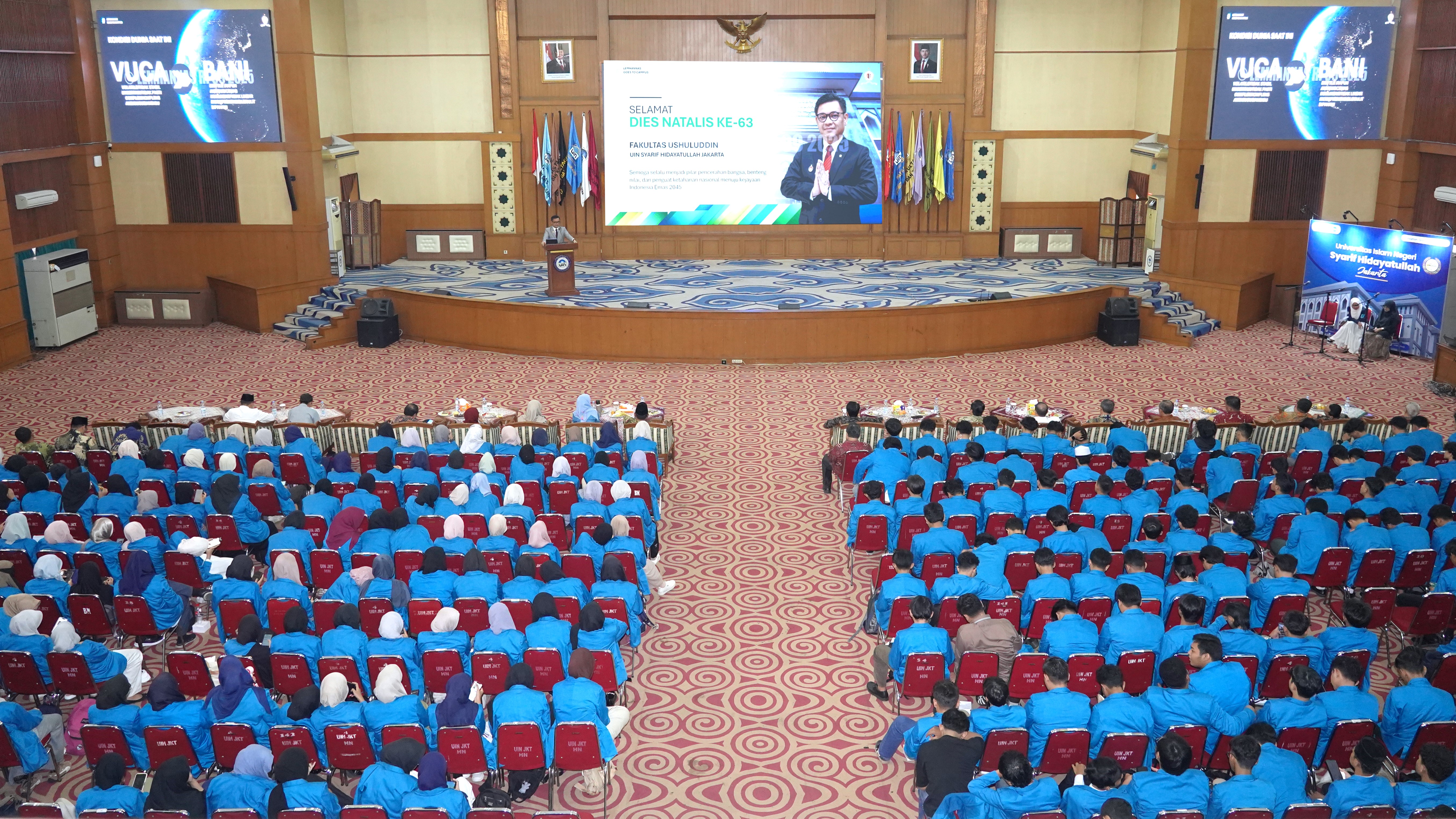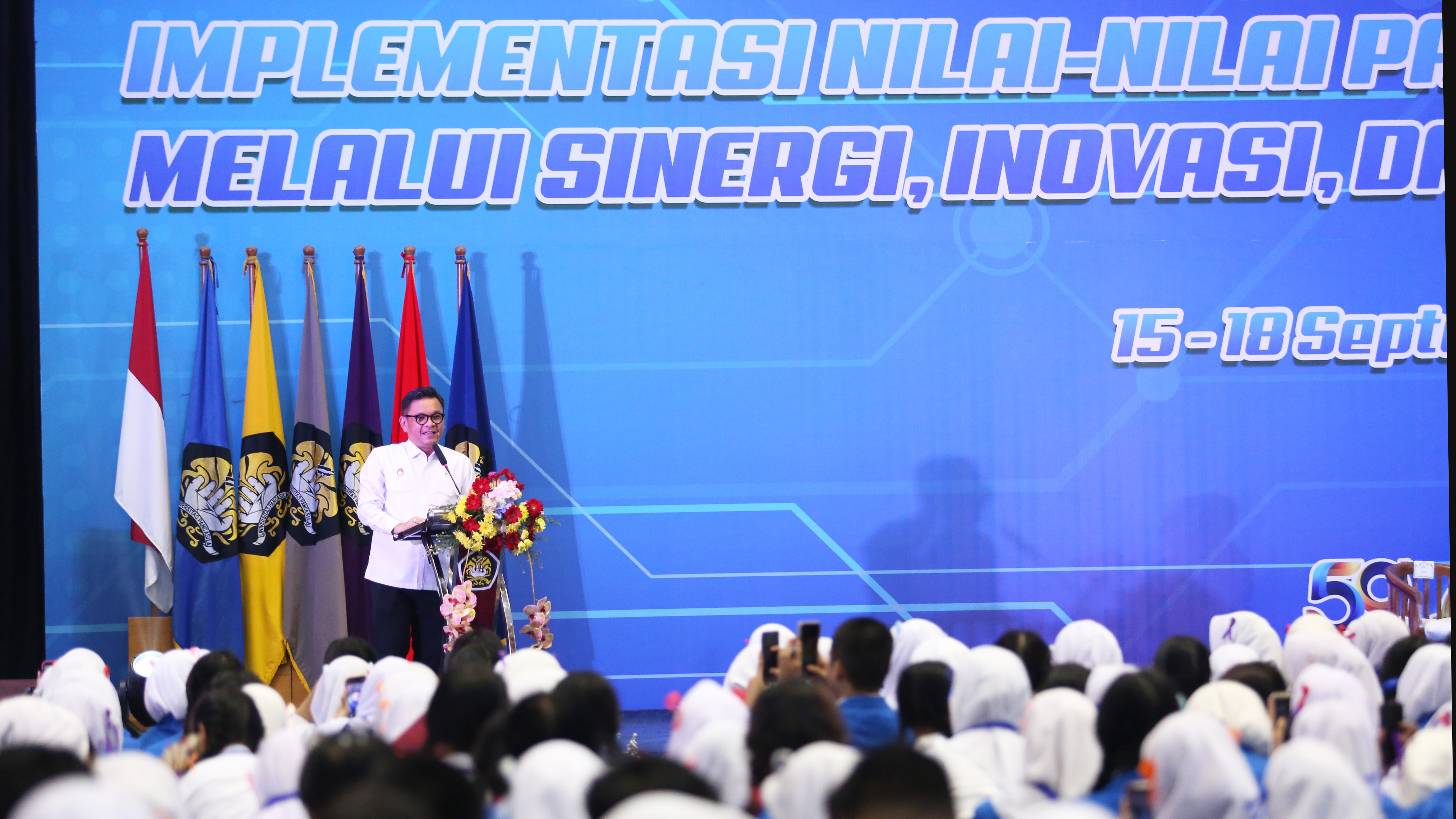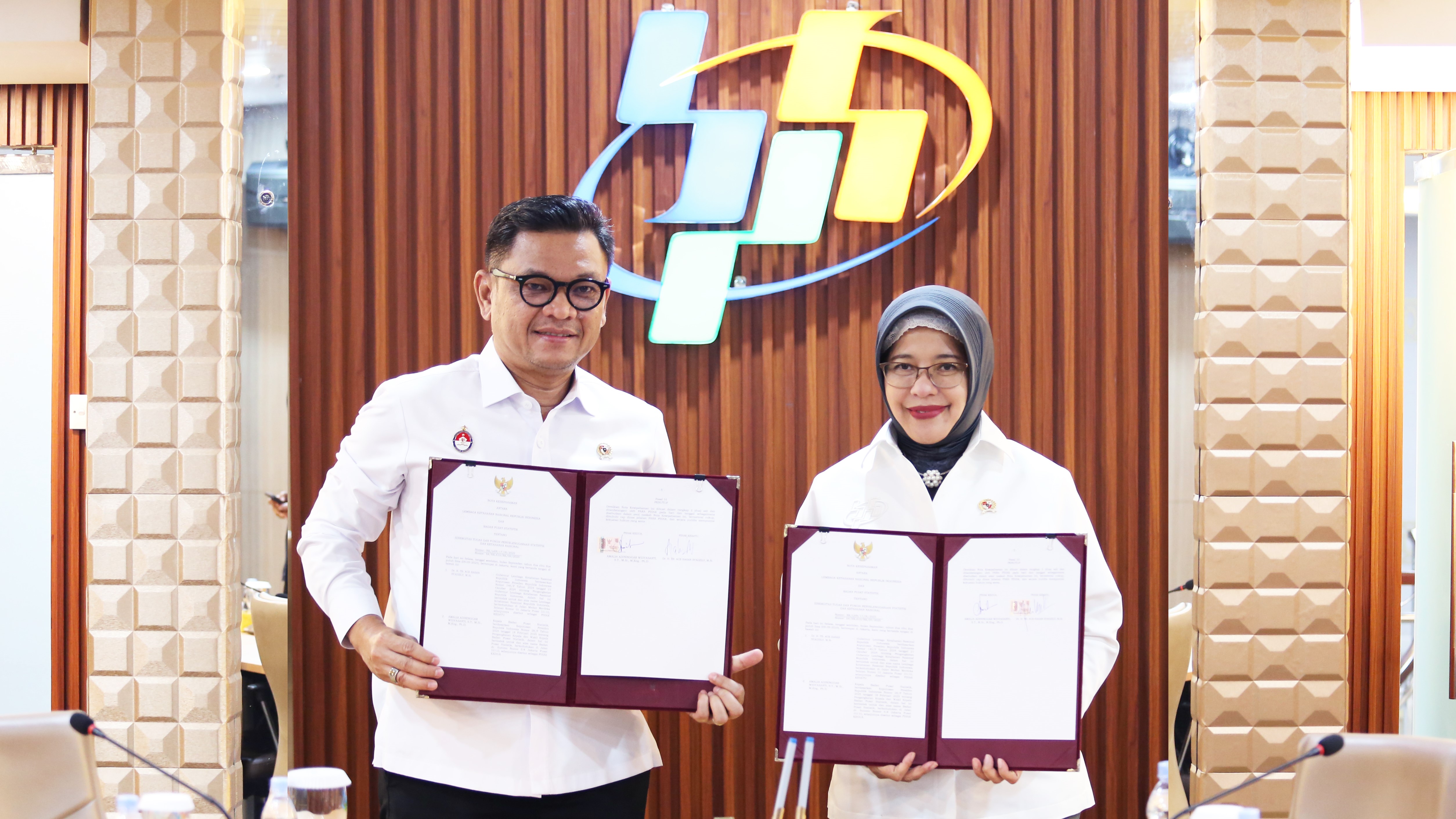Lemhannas RI Brings in Minister of PANRB to Prepare Leaders of Change
News & Article Tuesday, 01 July 2025, 10:00"The Ministry of Administrative and Bureaucratic Reform (KemenPAN RB) consistently encourages collaboration in all policymaking, because the core of bureaucratic reform is the principle of working together to implement policies,” said the Minister of PANRB, Rini Widyantini, S.H., MPM. She delivered this statement during a public lecture for participants Preparation and Consolidation Program for the National-level Leaders (P4N) batch 68 and the Consolidation Program for National-level Leaders (P3N) batch 25 held at the Gadjah Mada Auditorium on Tuesday (7/1). Lemhannas RI Governor, Dr. H. TB. Ace Hasan Syadzily, M.Si., personally welcomed Minister Rini Widyantini upon her arrival.
During the event, the Governor of Lemhannas RI emphasized the significance of Rini Widyantini’s visit. He noted that the consolidation of bureaucratic reform (RB) in Indonesia plays a crucial role in advancing effective governance and contributes to strengthening national resilience. “At Lemhannas RI, we bring together all elements of national strength through education,” he stated. He further added that bureaucrats represent one of the key driving forces behind the nation's development.
Rini Widyantini delivered a presentation titled “Bureaucratic Reform for Public Welfare.” In her remarks, she outlined key directives from the President and Vice President on bureaucratic reform which include enhancing bureaucratic responsiveness, accelerating policy execution, strengthening coordination across institutions, ensuring effective budget use, combating corruption and budget inefficiencies, improving civil servant management, adopting technology-driven services, and transforming public service delivery.
She also emphasized that the Ministry of PAN RB now is directly under the President's supervision. In this strengthened position, the ministry acts as the government's Chief Operating Officer (COO), tasked with overseeing the implementation of good governance across all levels ranging from national ministries and institutions to local and regional administrations.
Bureaucratic Reform (RB) is a strategic initiative aimed at enhancing the government's systems to become more effective and efficient, ensuring optimal public service delivery and the achievement of national development goals. It also signifies a broad transformation of government operations. “This means we need to rethink how our institutions are structured. Once we grasp the President’s vision, Astacita, and the 17 priority government programs, we must put them into action,” explained Rini Widyantini.
To support the President's vision and mission, bureaucratic reforms (RB) that impact public welfare have been regulated in Presidential Instructions (Inpres) and Presidential Decrees (Keppres). First, poverty alleviation bureaucratic reform is regulated in Presidential Instruction number 8 of 2025. Second, investment enhancement bureaucratic reform is regulated in Presidential Instruction number 7 of 2019.
Third, bureaucratic reform plays a role in encouraging downstreaming, as outlined in Presidential Instruction number 1 of 2025. Fourth, bureaucratic reform that supports efforts to strengthen national food security, as stated in Presidential Instruction number 3 of 2025.Fifth, bureaucratic reform that contributes to improving the quality and accessibility of health services, as mandated by Presidential Instruction number 5 of 2025.
Furthermore, Rini Widyantini stated that the bureaucracy currently faces, and will continue to face, several key challenges. These include building a new bureaucratic culture, fostering public trust, narrowing the digital competency gap, developing data-, evidence-, and empathy-based policies, and breaking down silos within the bureaucracy. She went on to emphasize that in the face of change, a leader must adopt a transformational mindset, being adaptive to change, thinking systemically and focusing on the impact resulted.
Concluding her presentation, Rini Widyantini urged the education participants to act as agents of change in the implementation of bureaucratic reform. She emphasized the importance of ensuring that units or work divisions make a meaningful impact on organizational performance and contribute to improving public welfare. She also encouraged them to introduce breakthroughs or innovations in reform efforts as a form of debottlenecking (finding solutions to obstacles in the implementation) of the President's priority programs. Additionally, she called on them to exemplify a proactive and collaborative work culture in addressing complex and tangible strategic issues faced by society.
"An agile bureaucracy is one that can quickly adapt to change without compromising integrity or the quality of public service," concluded Rini Widyantini. (SP/CHP)




